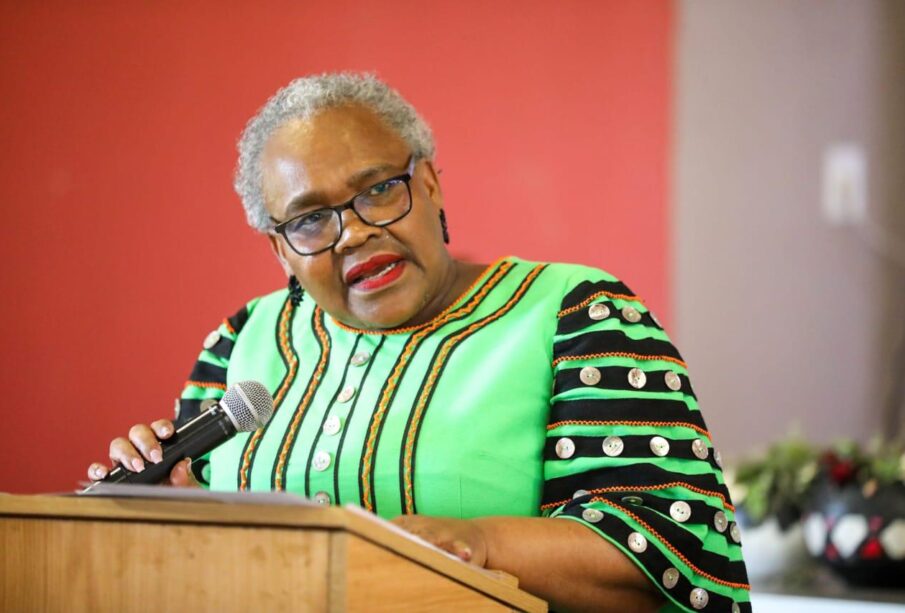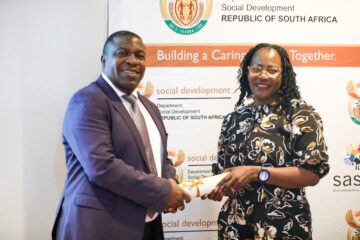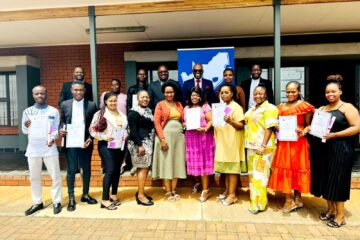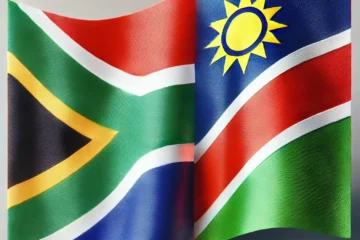MINISTER TOLASHE HONOURS CHILDREN CHANGING THE STATUS QUO | CHILDREN’S REPORT ON NSP-GBVF

Cuma Pantshwa
- On 19 October 2024, Minister Sisisi Tolashe launched the Children’s Report on the National Strategic Plan on Gender-Based Violence and Femicide (NSP-GBVF), marking a historic moment in South Africa’s 30th anniversary of democracy, with children proposing a dedicated 7th Pillar for their protection and empowerment within the NSP.
- The report is the result of extensive consultations held across South Africa’s nine provinces in 2023, led by the Children’s Parliament, where children raised concerns about their underrepresentation in the existing NSP pillars and called for specific focus on issues such as online safety, harmful cultural practices, and violence in homes, schools, and communities.
- Minister Tolashe affirmed the government’s commitment to addressing these concerns, highlighting the importance of children’s participation in policy-making and pledging to advocate for the inclusion of a dedicated Pillar 7 to address their unique challenges in the national strategy against gender-based violence and femicide.
As South Africa celebrates thirty years of democracy this year, 19 October 2024 marks a historic moment in the country’s journey towards protecting and empowering its children. Minister Sisisi Tolashe launched the Children’s Report on the National Strategic Plan on Gender-Based Violence and Femicide (NSP-GBVF), in which children made powerful recommendations requesting to be included in the NSP-GBVF as a separate 7th Pillar.
This report is the outcome of intense consultations held with children across all nine provinces in the fourth quarter of 2023. Led by the Children’s Parliament, the children raised their concerns regarding the status of violence in the country and how it affects them at different levels—whether at home, in communities, in schools, or even online. They concluded that they deserve their own pillar because they were underrepresented, and their issues were either overlooked or not included in any of the six existing NSP-GBVF pillars. These consultations followed the Second Presidential Summit, where children were for the first time invited to engage directly on the National Strategic Plan on Gender-Based Violence and Femicide.
This historic gathering took place at the Mary Moodley Child and Youth Care Centre in Benoni, Gauteng, and was attended by approximately 70 participants, primarily consisting of children residing at the home, as well as key stakeholders from various organisations committed to child welfare and protection. The Minister opened with a heartfelt message honouring the children in the room and assuring them that their voices were indeed heard. In her address, she affirmed the children’s importance, stating, “When I was growing up, I understood that as a child I belonged to the community, and the community would take care of me when my parents were not around.”
She emphasised that this sentiment echoes her commitment to social development and community-driven initiatives. Quoting South Africa’s first democratic president, Tata Nelson Mandela, “There can be no keener revelation of a society’s soul than the way in which it treats its children,” the Minister highlighted that creating platforms for children’s voices to be heard and calling for their participation in addressing Gender-Based Violence and Femicide is a way of honouring Mandela’s dreams and aspirations for South Africa’s children.
Minister Tolashe reiterated the government’s commitment to the NSP-GBVF, emphasising the need to act on the insights provided by the children. “The voices of our children are vital in shaping a future free of violence. We must listen, act, and ensure that their contributions to this report are implemented in policy and practice,” she stated. The Minister commended the efforts of the children involved, noting their valuable contributions to addressing the complex and multifaceted issue of gender-based violence.
Some of the glaring omissions in the current NSP-GBVF that the children raised include the following:
- Children experience violence in various settings such as homes, schools, Early Childhood Development Centres, communities, and even churches.
- Children’s developmental needs in social, health, and economic matters differ from those of women, requiring different conceptualisation and interventions.
- Children’s safety on online platforms.
- Continued abuse through harmful cultural practices such as genital mutilation, initiation rites, and child marriages.
The Minister additionally highlighted that the children’s contributions to the NSP-GBVF consultations align with the INSPIRE Strategies aimed at ending violence against children. (INSPIRE stands for Implementation and enforcement of laws; Norms and Values; Safe Environment; Parental and Caregiver Support; Income generation and economic empowerment; Response, Education, and life skills).
Some of the proposed issues to be covered in Pillar 7 include:
- Active participation of children in parliament with regular sittings to monitor progress.
- The inclusion of children in the work of all government departments.
- Equal opportunities for all children, regardless of gender and sexuality.
- Equal opportunities for women and children alike.
The Minister stressed to the partners and stakeholders in the room the importance of working together to transform the lives of children through engagement. “We should do everything in our might, knowledge, and expertise to turn around the status quo. Our actions must demonstrate a collective commitment that there is no space for gender-based violence or violence against children in our families, schools, communities, workplaces, and society at large.”
In closing, Minister Tolashe expressed gratitude to partners, including UNICEF, social workers, and children, for their contributions to the report. She confirmed that this groundbreaking report would be taken forward to incorporate interventions dedicated specifically to children and assured the children that she would advocate for the inclusion of Pillar 7 in the NSP-GBVF when the President of South Africa reviews the plan.














